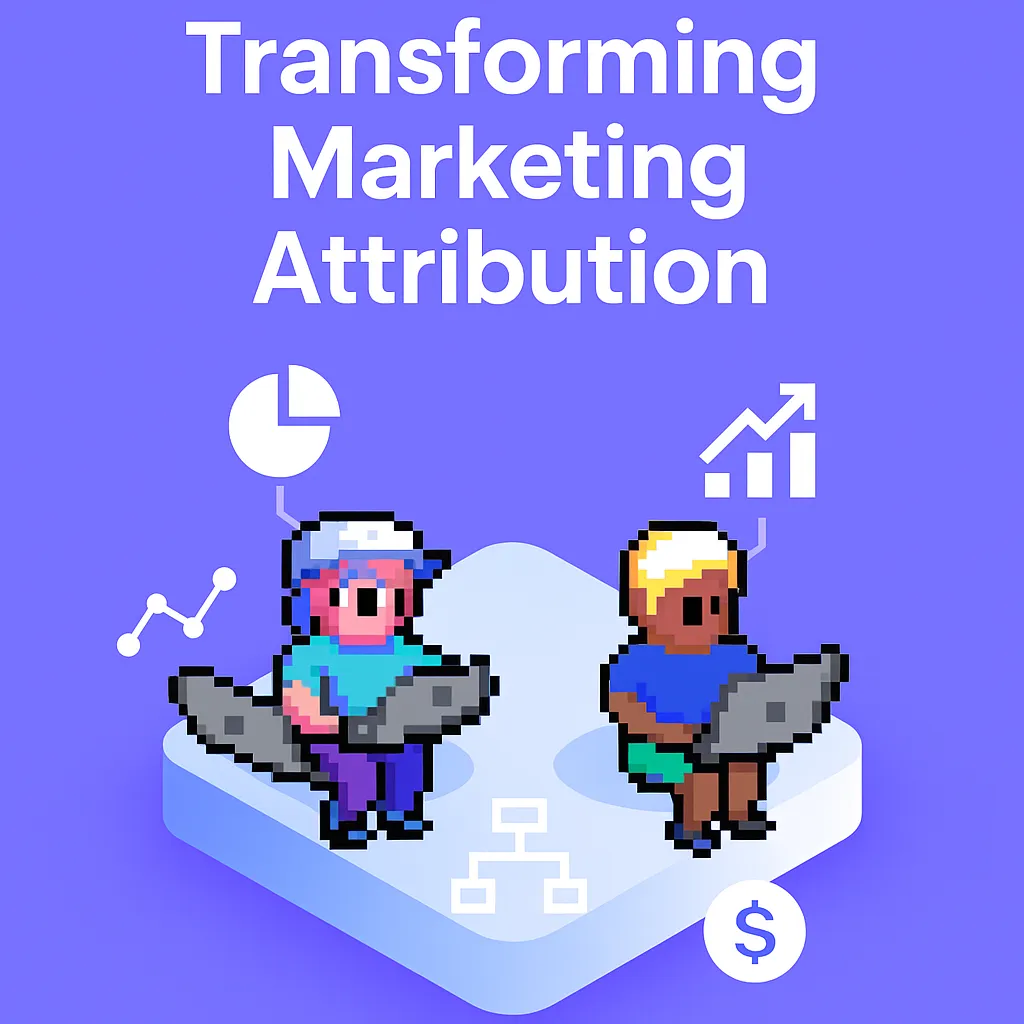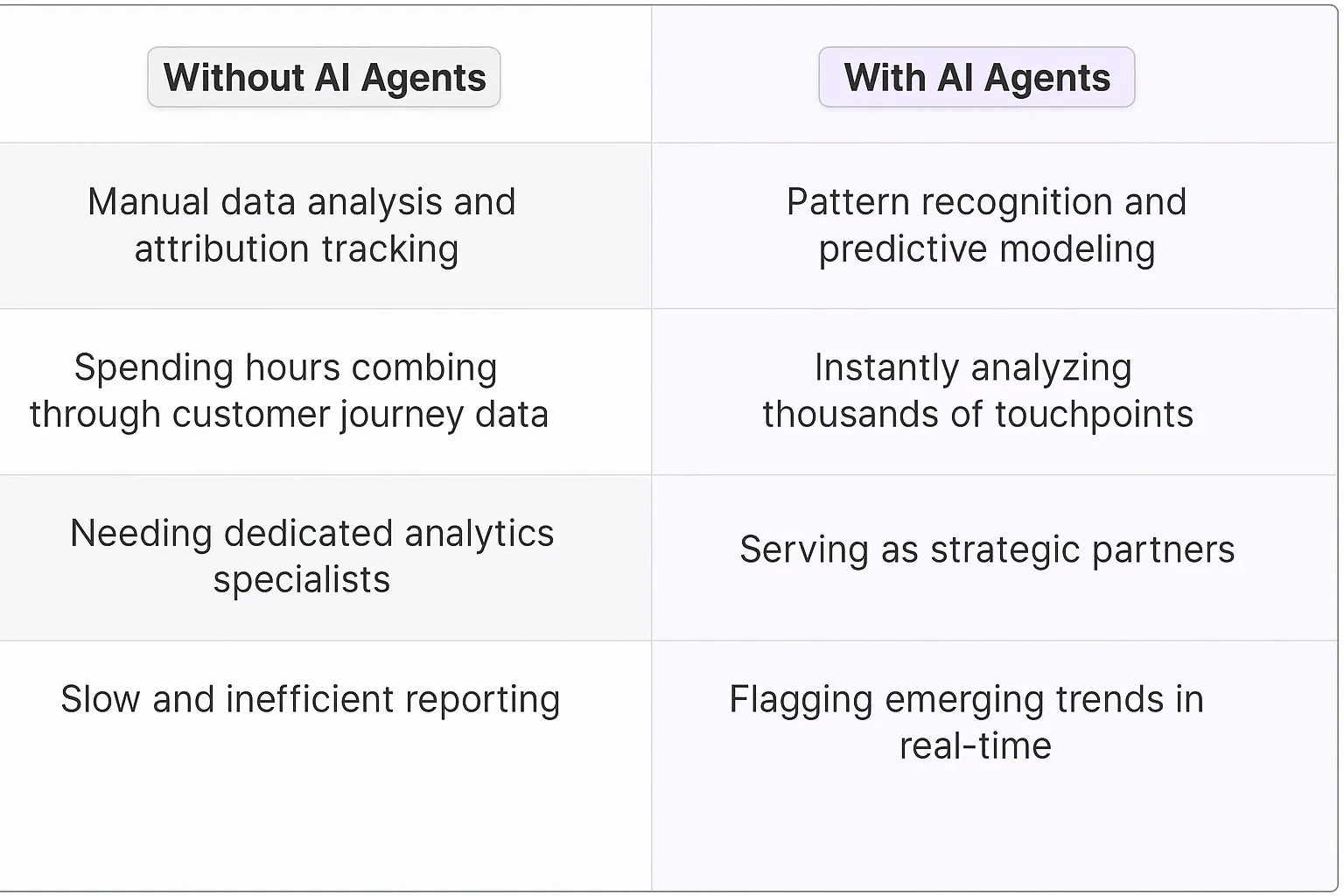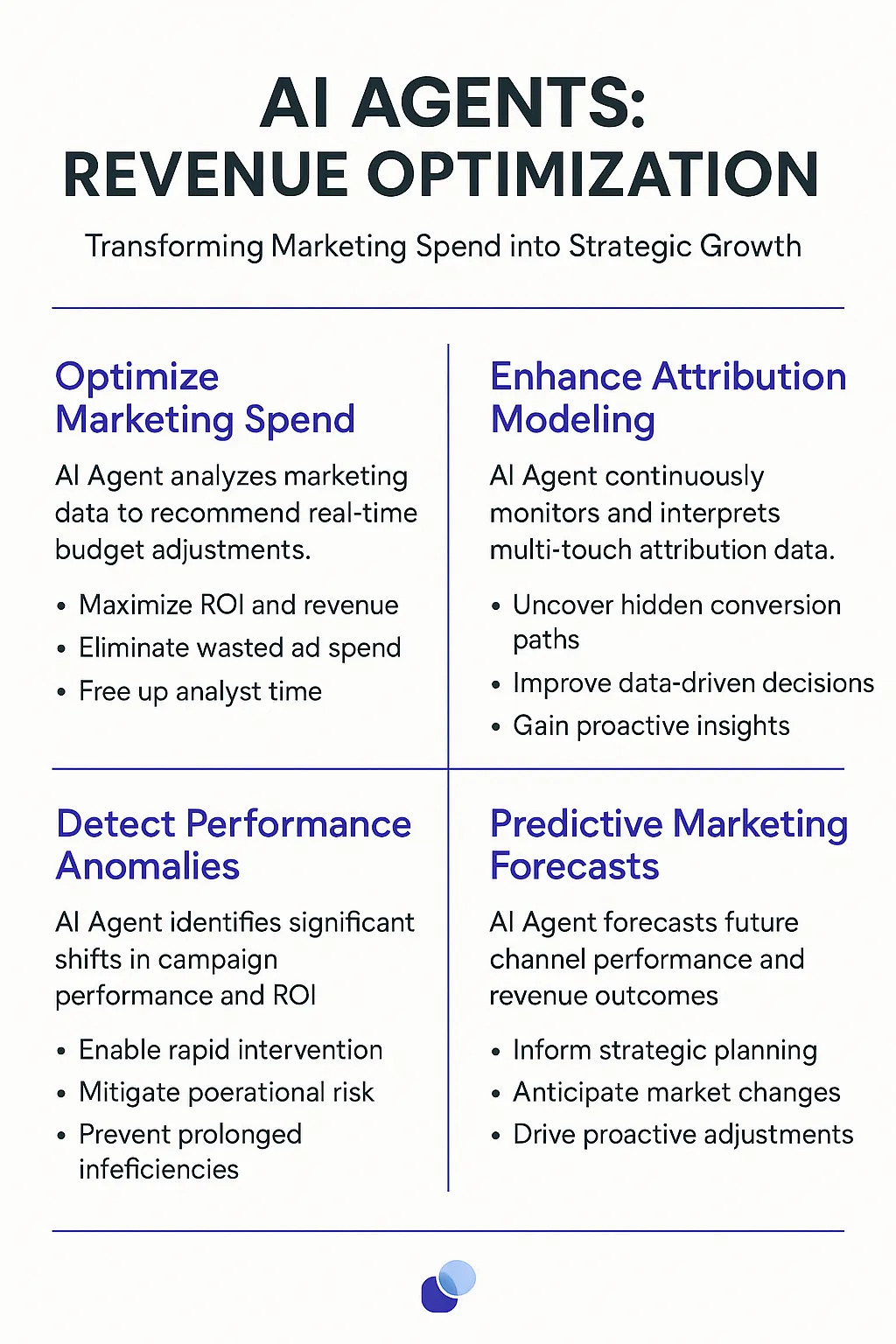Ruler Analytics
Understanding Ruler Analytics' Marketing Attribution Platform
Ruler Analytics stands as a marketing attribution platform that connects customer touchpoints to revenue outcomes. The platform tracks and measures the entire customer journey across multiple channels, providing granular visibility into which marketing activities drive actual sales and conversions. By connecting marketing data with CRM platforms and sales information, Ruler Analytics creates a closed-loop reporting system that shows true ROI.
Key Features of Ruler Analytics
The platform's core capabilities include multi-touch attribution modeling, visitor level tracking, call tracking integration, and revenue attribution reporting. It excels at connecting offline conversions to online marketing activities, making it particularly valuable for businesses with complex sales cycles. The system integrates with major CRM platforms and marketing tools while providing flexible attribution models to match different business needs.

Benefits of AI Agents for Ruler Analytics
What would have been used before AI Agents?
Marketing teams traditionally relied on manual data analysis and attribution tracking within Ruler Analytics. This meant spending hours combing through customer journey data, matching leads to revenue, and trying to piece together complex multi-touch attribution models. Teams would need dedicated analytics specialists to interpret the data and build custom reports - a process that could take days or weeks to complete.
What are the benefits of AI Agents?
AI Agents transform how teams leverage Ruler Analytics' attribution capabilities through pattern recognition and predictive modeling. These digital teammates can instantly analyze thousands of customer touchpoints to identify the highest-performing channels and campaigns.
The real power comes from their ability to surface non-obvious insights. While humans excel at spotting obvious trends, AI Agents detect subtle patterns in attribution data that reveal hidden opportunities. For example, they might identify that prospects who interact with specific content combinations have a 3x higher conversion rate.
Beyond pure analysis, AI Agents serve as proactive strategic partners. They monitor attribution data in real-time and flag emerging trends before they become obvious. This allows marketing teams to double down on what's working and quickly adjust underperforming campaigns.
The agents also democratize access to attribution insights across organizations. Rather than relying on analytics specialists, any team member can ask questions in plain language and receive clear, actionable answers about marketing performance and ROI. This creates a data-driven culture where decisions are based on evidence rather than gut feel.
Most importantly, AI Agents dramatically compress the time from data analysis to decision. What previously took days of manual analysis can now be accomplished in minutes through natural conversations with these digital teammates. This gives marketing teams more time to focus on creative strategy and campaign execution.

Potential Use Cases of AI Agents with Ruler Analytics
Marketing attribution becomes exponentially more powerful when AI agents process and analyze the data flowing through Ruler Analytics. These digital teammates transform raw data into actionable intelligence that drives revenue-generating decisions.
Processes
- Multi-touch attribution modeling that automatically identifies the most effective marketing channels and adjusts spend recommendations in real-time
- Predictive lead scoring based on historical conversion patterns and current engagement signals
- Dynamic customer journey mapping that reveals previously hidden conversion paths and micro-moments
- Automated revenue forecasting using machine learning models trained on historical attribution data
- Intelligent budget allocation that maximizes ROI across channels based on attribution insights
Tasks
- Generating detailed attribution reports customized for different stakeholders and KPIs
- Monitoring conversion rate changes and automatically flagging statistically significant drops
- Analyzing call tracking data to identify high-value conversation topics and keywords
- Cross-referencing CRM data with marketing touchpoints to surface optimization opportunities
- Creating custom dashboards that visualize complex attribution patterns in intuitive ways
- Automating UTM parameter creation and management for consistent tracking
- Identifying anomalies in tracking data that could indicate technical issues
The combination of Ruler Analytics' robust attribution capabilities with AI-powered analysis creates a powerful system for understanding and optimizing marketing performance. This integration enables marketing teams to move beyond basic reporting into sophisticated, data-driven decision making that directly impacts revenue growth.

Industry Use Cases
AI agents within Ruler Analytics transform how businesses extract value from their customer journey data. These digital teammates operate across multiple sectors, each bringing unique analytical capabilities to solve specific industry challenges. The depth and sophistication of AI-powered analysis creates opportunities for businesses to understand their customers in ways previously impossible with traditional analytics tools.
From e-commerce platforms tracking complex multi-touch attribution to B2B companies mapping extended sales cycles, AI agents adapt to the distinct needs of each sector. They excel at identifying patterns in vast datasets, surfacing actionable insights that drive revenue growth and customer satisfaction. The real power lies in their ability to continuously learn from new data, making their analysis increasingly precise over time.
The following industry examples demonstrate how AI agents tackle specific business challenges, showcasing their versatility in converting raw data into strategic advantage. Each case highlights unique applications that go beyond basic analytics to deliver transformative business value.
Digital Marketing Agencies: Scaling Attribution with AI
Digital marketing agencies face a persistent challenge: accurately attributing results across dozens of client campaigns and thousands of touchpoints. The complexity multiplies with each new client and channel added to the mix. This is where Ruler Analytics AI agents create a step-change in capabilities.
Take a mid-sized agency managing 50+ client accounts. Their teams typically spend 15-20 hours per week manually connecting data points between Google Analytics, ad platforms, and CRM systems to demonstrate ROI. A Ruler Analytics AI agent can continuously monitor these data streams in real-time, instantly flagging attribution gaps and anomalies that humans might miss.
The AI agent doesn't just passively track - it actively builds comprehensive attribution models tailored to each client's unique customer journey. When a B2B software client sees a spike in demo requests, the agent can trace back through every touchpoint to identify the exact combination of LinkedIn ads, email sequences, and content pieces that drove that outcome.
Beyond basic attribution, these digital teammates learn the nuances of different industries and business models. They understand that a 30-day attribution window might make sense for e-commerce but needs to extend to 90+ days for enterprise software sales. This contextual intelligence helps agencies move past simplistic last-click attribution to truly understand complex B2B buying journeys.
The most powerful impact comes from the AI agent's ability to surface actionable insights in real-time. Rather than waiting for monthly reporting cycles, agency teams get instant alerts when campaign performance shifts, allowing them to optimize spend and creative on the fly. This transforms attribution from a backward-looking exercise into a proactive optimization tool.
For agencies looking to scale their attribution capabilities while maintaining accuracy and insight, AI agents represent a fundamental shift in what's possible. The combination of continuous monitoring, pattern recognition, and industry-specific intelligence creates a new paradigm for marketing measurement.
E-commerce: Converting Clicks to Customers with AI-Powered Attribution
The e-commerce attribution puzzle has grown exponentially more complex. With shoppers bouncing between social media, email, display ads, and marketplace listings, tracking the true path to purchase requires sophisticated pattern recognition that exceeds human capabilities.
A typical mid-market e-commerce brand running campaigns across Meta, Google, TikTok and email might generate over 100,000 customer interactions daily. Ruler Analytics AI agents process these massive interaction datasets to construct granular customer journey maps, revealing the precise sequence of touchpoints that drive purchases.
The real breakthrough comes from the AI's ability to identify micro-conversion patterns. When analyzing data from a fashion retailer, the AI agent discovered that customers who engaged with both Instagram Story ads and abandoned cart emails within 48 hours were 3x more likely to complete a purchase. This level of insight allows brands to optimize their retargeting strategy with surgical precision.
These digital teammates also adapt to seasonal shifts in consumer behavior. During peak shopping periods like Black Friday, the AI automatically adjusts attribution models to account for compressed decision cycles and impulse purchases. In slower periods, it extends the lookback window to capture longer consideration phases.
The most sophisticated applications combine attribution data with inventory and margin analysis. When a beauty brand's AI agent detected that their highest-margin products were being discovered through Pinterest but converting through Google Shopping, they restructured their channel strategy to maximize profitability.
For e-commerce brands drowning in data but starving for insights, AI agents transform attribution from a reporting exercise into a strategic advantage. By connecting every customer interaction to revenue outcomes, these tools enable truly data-driven growth decisions that scale with business complexity.
Considerations and Challenges
Implementing Ruler Analytics AI agents requires careful planning and strategic consideration across multiple dimensions. The complexity goes beyond simple setup and deployment - organizations need to think deeply about data quality, integration points, and measurement frameworks.
Technical Challenges
Data quality forms the foundation for effective attribution modeling. Ruler Analytics agents need clean, consistent data streams to accurately track customer journeys. Common technical hurdles include:
- Fragmented data sources across marketing platforms creating incomplete user profiles
- Cookie deprecation affecting cross-domain tracking capabilities
- Complex multi-touch attribution scenarios requiring custom tracking logic
- API rate limits restricting real-time data processing
- Legacy system compatibility issues with modern tracking methods
Operational Challenges
The human and process elements often prove more challenging than technical implementation. Key operational considerations include:
- Training marketing teams to properly interpret attribution data
- Establishing clear ownership of data quality and maintenance
- Developing standardized processes for handling tracking edge cases
- Managing stakeholder expectations around attribution accuracy
- Creating feedback loops between marketing and analytics teams
Strategic Planning
Success requires thinking beyond immediate implementation needs. Organizations should focus on:
- Defining clear success metrics aligned with business objectives
- Building scalable processes that can grow with increasing data volume
- Creating documentation and training materials for sustainable knowledge transfer
- Establishing governance frameworks for data access and usage
- Planning for future integration needs as marketing stack evolves
Organizations that proactively address these challenges position themselves to extract maximum value from their Ruler Analytics implementation while minimizing common pitfalls that can derail attribution projects.
The Future of AI-Powered Marketing Attribution
The marriage of AI Agents with Ruler Analytics represents a fundamental shift in marketing attribution capabilities. Organizations gain the ability to process vast amounts of customer journey data at scale while surfacing insights that would be impossible to detect manually. As marketing complexity continues to increase, this combination of robust attribution tracking and AI-powered analysis becomes not just an advantage but a necessity for data-driven growth. The key to success lies in thoughtful implementation that addresses both technical and operational challenges while maintaining focus on clear business objectives.













